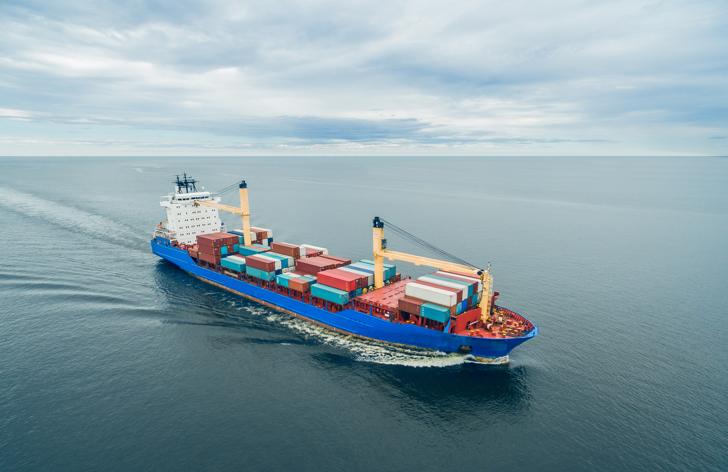Reducing Environmental Risks: The Importance of Bilge Monitoring Systems like Brannstrom Bilgmon 488

The global shipping industry plays a vital role in driving international trade, but it also faces growing scrutiny over its environmental impact. One of the most pressing concerns in maritime operations is pollution caused by the improper discharge of oily bilge water. Regulations such as MARPOL Annex I have made it mandatory for vessels to manage bilge discharge responsibly, requiring advanced monitoring systems to ensure compliance.
Among these solutions, the brannstrom bilgmon 488 has emerged as a trusted system for accurate bilge monitoring. Supported by providers like RMS Marine Service, this technology helps ship operators minimize environmental risks, comply with international standards, and maintain operational efficiency.
Understanding Bilge Water and Its Environmental Impact
Bilge water accumulates in the lowest compartment of a ship, known as the bilge. It typically contains a mix of water, oil, lubricants, chemicals, and other residues that result from machinery operations. If discharged untreated into the sea, bilge water can cause significant environmental harm, polluting marine ecosystems and violating international regulations.
The key challenge for ship operators is ensuring that oily bilge water is treated and monitored before discharge. This is where advanced monitoring systems become indispensable.
The Role of Bilge Monitoring Systems
Bilge monitoring systems are designed to measure the oil content in bilge water before it is discharged overboard. These systems:
-
Ensure Compliance: By meeting the strict limits of oil content set by MARPOL Annex I (15 ppm or less).
-
Reduce Environmental Risks: By preventing harmful substances from being released into marine environments.
-
Enhance Safety: By automating monitoring and reducing the risk of human error.
-
Support Sustainability: By aligning shipping operations with global sustainability goals.
Without reliable systems, ship owners risk non-compliance, hefty fines, and damage to their reputation.
Why the Brannstrom Bilgmon 488 Stands Out
The brannstrom bilgmon 488 is a leading bilge monitoring system trusted across the maritime industry. Its key advantages include:
-
Accuracy: Provides highly precise measurements of oil content in bilge water.
-
Compliance Ready: Certified to meet IMO standards and international regulations.
-
Reliability: Built to withstand challenging maritime environments with consistent performance.
-
Ease of Integration: Can be installed on a wide range of vessels, from cargo ships to offshore platforms.
-
User-Friendly Interface: Simplifies monitoring for crew members, reducing operational errors.
This system not only protects the marine environment but also ensures that vessels can operate without the risk of non-compliance penalties.
RMS Marine Service: Supporting Sustainable Shipping
Ship owners need more than just equipment—they need reliable partners who can supply, maintain, and support compliance. This is where RMS Marine Service plays a critical role.
As a global provider of marine solutions, RMS offers:
-
Supply and Installation: Ensuring systems like the brannstrom bilgmon 488 are available and operational across ports worldwide.
-
Maintenance and Support: Technical services to keep bilge monitoring systems functioning effectively.
-
Compliance Assistance: Helping ship owners meet international requirements through inspections and certification support.
-
Integrated Services: Offering not just monitoring systems but also spare parts, safety equipment, and logistics support for complete marine solutions.
By combining technology with reliable service, RMS Marine Service enables ship operators to achieve both compliance and sustainability.
The Wider Push for Sustainability in Shipping
Bilge monitoring is part of a much larger effort to reduce the environmental footprint of shipping. The industry is moving toward cleaner fuels, energy-efficient engines, and eco-friendly practices. However, compliance with bilge water discharge regulations remains one of the most immediate and critical responsibilities for ship operators.
Using systems like the brannstrom bilgmon 488 reflects a proactive approach to sustainability. It shows a commitment not only to regulatory compliance but also to protecting marine ecosystems for future generations.
The Cost of Non-Compliance
Failure to properly monitor bilge discharge can result in severe consequences for ship owners and operators, including:
-
Heavy fines and penalties from regulatory authorities.
-
Detention of vessels at ports.
-
Environmental damage lawsuits.
-
Loss of reputation and credibility in the industry.
These risks far outweigh the investment in reliable bilge monitoring systems and professional support services.
Conclusion
As the shipping industry faces rising expectations for sustainability and compliance, effective bilge water management has become a critical priority. Advanced systems like the brannstrom bilgmon 488 provide the accuracy and reliability ship operators need to minimize environmental risks and stay aligned with international standards.








